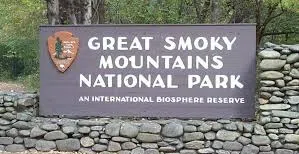Great Smoky National Park is receiving many questions regarding the status of the park and surrounding areas. We posted the below update on social media and the park website this evening (Monday 9/30/24) in response to these questions:
Wondering whether you should reschedule your trip to the Smokies due to impacts from Hurricane Helene? While parts of the national park are open, outdoor recreation is currently discouraged due to park staffing being stretched and visitor safety concerns. However, Sevier County, which includes Gatlinburg, Pigeon Forge, and Sevierville, is fully open to those who can access the county through safe routes. We are working hard to get all major park roads open to the public as soon as possible.
We’ll continue to share updates on the status of roads and park facilities on the park’s Current Conditions page https://www.nps.gov/grsm/planyourvisit/conditions.htm and social media.
Hurricane Helene recovery in Great Smoky Mountains National Park
GATLINBURG, Tenn.—The National Park Service (NPS) continues to assess conditions and to address damage following the impacts from Hurricane Helene in Great Smoky Mountains National Park. Today, park staff are prioritizing assessments of high use roads and trails as well as radio repeaters and historic structures throughout the park.
Several park roads, including Newfound Gap Road/US 441, remain closed. There are no current reopening estimates for closed roads. Visit the park website https://www.nps.gov/grsm/index.htm for a map of what’s open and closed.
Park staff and resources are currently limited at Great Smoky Mountains National Park. Several park employees in both North Carolina and Tennessee are dealing with emergencies at home or are unable to drive to work due to closed roads. Multiple employees are also assisting the Blue Ridge Parkway and surrounding communities.
While we recognize that this is a popular time to visit the park, visitors are encouraged to reschedule their trips for their own safety. If visitors choose to visit, they are asked to recreate responsibly—know your limits, avoid water recreation and know that emergency response times may be delayed. Hiking and backcountry travel are not recommended due to the unpredictability of creek crossings, potential of downed trees and other hazardous trail conditions. Emergency services are currently stretched thin and have already responded to several incidents (many unrelated to the storm) in the last several days.
Visitors should also be mindful of closures and limited resources in some communities surrounding the park. Western North Carolina communities and Cocke County (Tennessee), in particular experienced significant flooding and have downed trees, damaged powerlines and limited resources. The North Carolina Department of Transportation advises that all travel in Western North Carolina should be for emergencies only. Surrounding communities may have limited resources (gas, food, water) available to visitors at this time.
What’s currently closed in Great Smoky Mountains National Park:
- Balsam Mountain area, campground and roads.
- Big Creek area, campground and roads.
- Cataloochee Valley area, campground and roads (including Hwy 284).
- Deep Creek (the creek itself) between Indian Creek Bridge and the park boundary closed to all water activity.
- Deep Creek Campground.
- Foothills Parkway East.
- Kuwohi Road (formerly known as Clingmans Dome Road).
- Kuwohi Visitor Center.
- Lakeview Drive.
- Newfound Gap Road/Hwy 441.
- Oconaluftee Visitor Center.
- Parson Branch Road (due to Flint Gap Fire impacts).
- Smokemont Campground.
Additional updates will be shared on the park website https://www.nps.gov/grsm/index.htm.










